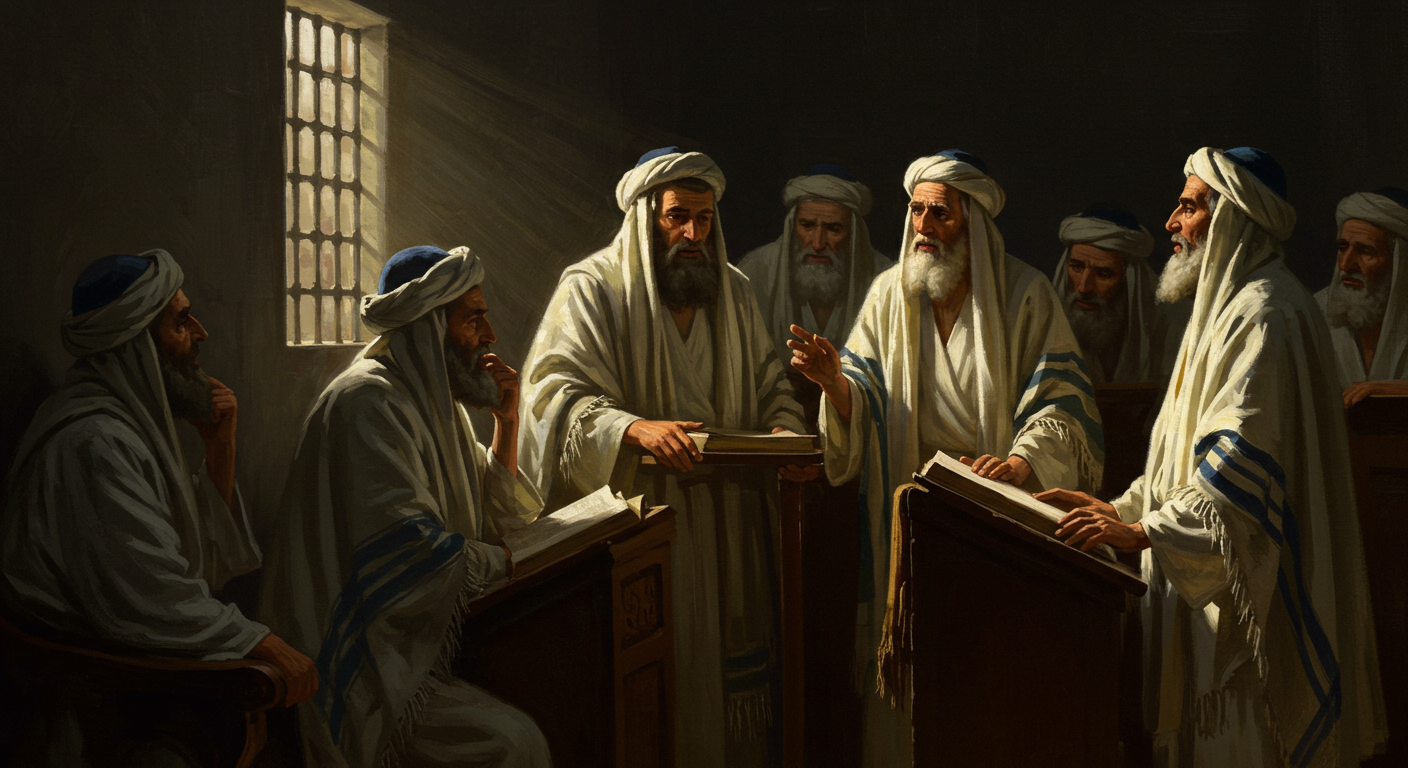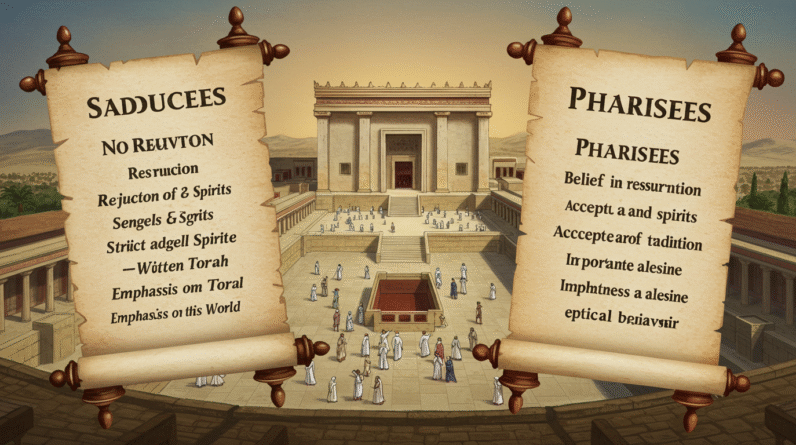Explore the complexities of the Pharisees in the Bible. Dive into Matthew 23 and John 3:1-21, revealing their struggles with law, grace, and authentic faith.
The Pharisees – A Glimpse Through Matthew 23 and John 3:1-21
In the rich tapestry of the Bible, certain groups appear with striking regularity. The Pharisees, often depicted in the New Testament, are such a group. They were more than just religious leaders; they were pivotal players in the narratives of Jesus’ life and ministry. Their encounters with Christ, as depicted in Matthew 23 and John 3:1-21, reveal profound truths about human nature, spirituality, and the pursuit of genuine faith.

Their Story in the Bible
The Pharisees’ Role and Significance
The Pharisees don’t merely serve as adversaries to Jesus’ teachings; they embody the struggle between rigid adherence to the letter of the law and the transformative power of grace. Rooted in a desire to preserve religious purity, they evolved into a power structure with influence that reached far beyond mere theology. Their actions and decisions wielded significant weight in Jewish society, thus making their interactions with Jesus deeply influential in the story of Christianity.
A Critique Not Without Purpose: Matthew 23
In Matthew 23, Jesus delivers a poignant critique of the Pharisees, illuminating the dangers of spiritual hypocrisy. His words are a clarion call to authenticity, emphasizing the importance of inward righteousness over outward religiosity. Each “woe” he pronounces upon them serves as a mirror for anyone who might prioritize appearances over truth. It’s a chapter not solely of condemnation but of hope—for in the critique lies an invitation to return to true worship.
A Personal Encounter: Nicodemus and Jesus
Not all Pharisees were dismissive of Jesus. John 3:1-21 introduces Nicodemus, a Pharisee who seeks understanding rather than conflict. His nighttime visit to Jesus illuminates a journey of personal faith—a quest for truth that all believers are invited to undertake. Through their conversation, the fundamental requirement for spiritual rebirth is unveiled, reshaping Nicodemus’s perspective on faith and life.
Lessons from Their Life
The Pitfalls of Spiritual Arrogance
From the Pharisees’ portrayal in the Gospels, we learn the dangers of spiritual pride. Worship, when reduced to mere ritual without heartfelt devotion, becomes hollow. Their insistence on external adherence serves as a reminder to evaluate our own spiritual walks to ensure our hearts are engaged in genuine worship, not just obligation.
The Desire for Understanding
Nicodemus’s earnest quest for truth underscores the importance of seeking to understand rather than to be understood. His story teaches the power of humility and openness in the journey of faith. It invites readers like you to approach life’s profound questions with an open mind and a willing heart, ready to be transformed by truths that might initially challenge existing beliefs.
Connection to Today’s World
The Struggle for Authenticity
In today’s fast-paced world, the Pharisees’ story resonates with anyone who feels caught between societal expectations and personal convictions. Their challenges can mirror the internal conflicts many face when societal pressures encourage conformity over authenticity. You are encouraged to prioritize authenticity in your faith and actions, ensuring that modern ideals do not surmount timeless truths.
Embracing Spiritual Curiosity
Nicodemus exemplifies the courage it takes to seek deeper understanding. In an age where information is abundant yet wisdom scarce, his story is a reminder to not shy away from questioning and exploring your spiritual beliefs. Embrace curiosity; like Nicodemus, be prepared for how this journey may redefine your understanding of foundational truths.
Key Bible Verse
“For God so loved the world that he gave his one and only Son…” (John 3:16)
This verse encapsulates the essence of Jesus’ conversation with Nicodemus, offering profound insight into God’s unwavering love and the path to eternal life. It stands as a beacon of hope, emphasizing belief and spiritual rebirth as the cornerstones of Christian faith.
Thought-Provoking Question
When faced with life’s complexities and the expectations of others, how can you ensure your faith remains authentic and grounded in genuine belief rather than mere tradition?

Historical and Cultural Context
Understanding the Pharisees’ Influence
The role of the Pharisees extends beyond their biblical portrayal. Understanding them necessitates an exploration of the sociopolitical and religious climate of first-century Judea. They were not just religious leaders but cultural gatekeepers, shaping and enforcing standards that dictated societal norms. Their influence was vast, serving as both guides and gatekeepers in their communities.
Comparison with Other Characters
Where the Pharisees often epitomize conflict with Jesus, consider the contrast with figures like the Samaritan woman at the well. Her encounter, like Nicodemus’s, demonstrates that openness to transformative conversations can redefine one’s spiritual journey, further highlighting the potential for change and the embrace of new truths.
A Prayer Inspired by Their Story
Lord, guide us in seeking authenticity in our faith. Help us to embrace humility and the courage to ask questions. May our hearts remain open to Your truth, always prioritizing love over complacency and genuine faith over public approval. Amen.







